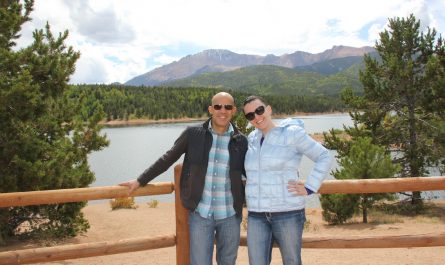Are you tired of the daily grind? Working just to pay bills? Financial Independence and Early Retirement (FIRE) might be your ticket to freedom. While cutting out lattes and cable TV are good starts, they won’t get you there alone. Let’s explore 15 bold moves that can dramatically speed up your journey to financial independence.
Understanding Your FI Number
Before diving into strategies, it’s crucial to understand that everyone’s FI number is unique. Some aim for millions, while others need less due to their lifestyle choices. The key is to determine your personal FI number and timeline.

1. Slash Your Housing Costs
Housing is typically one of the top three expenses. Tackle it head-on:
- Downsize to a smaller home
- Rent out extra rooms
- Consider renting instead of buying
We’ve always rented, which gives us a fixed housing cost without surprise maintenance expenses eating into our investment income.
2. Become a One-Car Family
Owning and operating a mid-sized vehicle costs around $8,000 annually. We saved at least $1,000 per year by selling one car and carpooling to work. Consider:
- Moving closer to work
- Using public transportation
- Carpooling with colleagues
- Working from home
- Renting a car only when necessary
- Biking or walking more
3. Track Your Spending Religiously
Use apps like Monarch to automate expense tracking. We’ve been doing this for years, and it’s eye-opening to see where your money actually goes.
4. Maximize Tax-Advantaged Accounts
Legally reduce your taxes by maxing out 401(k)s and Roth IRAs. This strategy significantly accelerated our path to FI. For early retirees, consider strategies like the Roth IRA Conversion Ladder to minimize taxes on withdrawals.
5. Eliminate Consumer Debt
High-interest debt is a net worth killer. Prioritize paying off credit cards and car loans with interest rates above 3%. We made debt elimination our top priority and saw our net worth skyrocket as a result.

6. Focus on True Happiness
Identify what truly makes you happy—it’s rarely material possessions. We’ve increased our quality of life while decreasing spending by focusing on experiences and relationships.
7. Combat Lifestyle Inflation
When you get a raise or bonus, resist the urge to increase your spending. Instead, boost your debt payments or investments. Make your money work for you until you no longer need to work for it.
8. Invest Regularly and Aggressively
We love investing more than shopping. Every index fund purchase is buying a piece of our freedom. Even post-FI, we continue investing in our Freedom Fund. Consider platforms like Vanguard to start your investment journey.
9. Hunt for Discounts
Before any purchase, large or small, look for discounts. A quick online search before buying in-store can lead to significant savings. We recently saved $15 on a pair of shoes with this strategy.
10. Cut Down on Dining Out
Eating out less frequently can easily save you $1,200-$1,800 per year. We spend about $275 monthly on dining out, which is below average, and mostly reserve it for vacations.
11. Stay Focused on Your FI Goal
Regularly revisit your FI number and timeline. Use tools like the MadFientist’s FI Laboratory to track progress. Stay motivated by consuming FI-related content, like the ChooseFI podcast.

12. Minimize Your Commute
Moving closer to work not only saves time and money but also improves quality of life. It was one of the best decisions we made on our FI journey.
13. Rethink Holiday Traditions
Create new, less expensive holiday traditions. We’ve stopped exchanging gifts and focus on quality time instead. For Valentine’s Day, I cook a romantic dinner at home rather than splurging at restaurants.
14. Practice Delayed Gratification
When shopping online, leave items in your cart for a few days before purchasing. You’ll often find you no longer want or need them. This simple trick has saved us countless dollars on impulse buys.
15. Consider Real Estate Investing
Instead of rushing to buy a dream home, consider investing in rental property first. We kept a rental property while renting ourselves, which contributed significantly to our FI goal and allowed for job flexibility.
Bonus Tip: Choose the Right Partner
If you’re single, look for a partner who shares your financial values or is at least a saver. My wife and I met at work and reached FI much faster together than we would have individually.
Final Thoughts
Financial independence isn’t about deprivation—it’s about making intentional choices that align with your values and long-term goals. By implementing these strategies, you’ll be well on your way to breaking free from the paycheck-to-paycheck cycle and achieving the freedom to live life on your own terms.






Love this article! So much good advice outlined in a succinct way. And thanks for including my house hacking article! Glad that idea made it as part of the core advice.
Thank you! Yours it’s a great article and we’re more than happy to share it with our audience.
Choosing the right parter is really #1 in my opinion. I married at 21 to a frugal guy, and that alone has set us up to be in a really good spot as we enter our 30s in a few months.
I have to agree with you 100% on this one. As Tanya was editing this article she pointed this one out and I added it at the end. How could I have forgotten this one?!?
So yes, if you marry the right person you’ll set yourself up for financial success. Thanks for reading!
Echo chamber in here. People roll their eyes of seeing trite photos of people on a beach when even people who work can do that. It’s just taking a random day off. Not the flex you think it is. When you retire, go enjoy it but don’t bore other people.